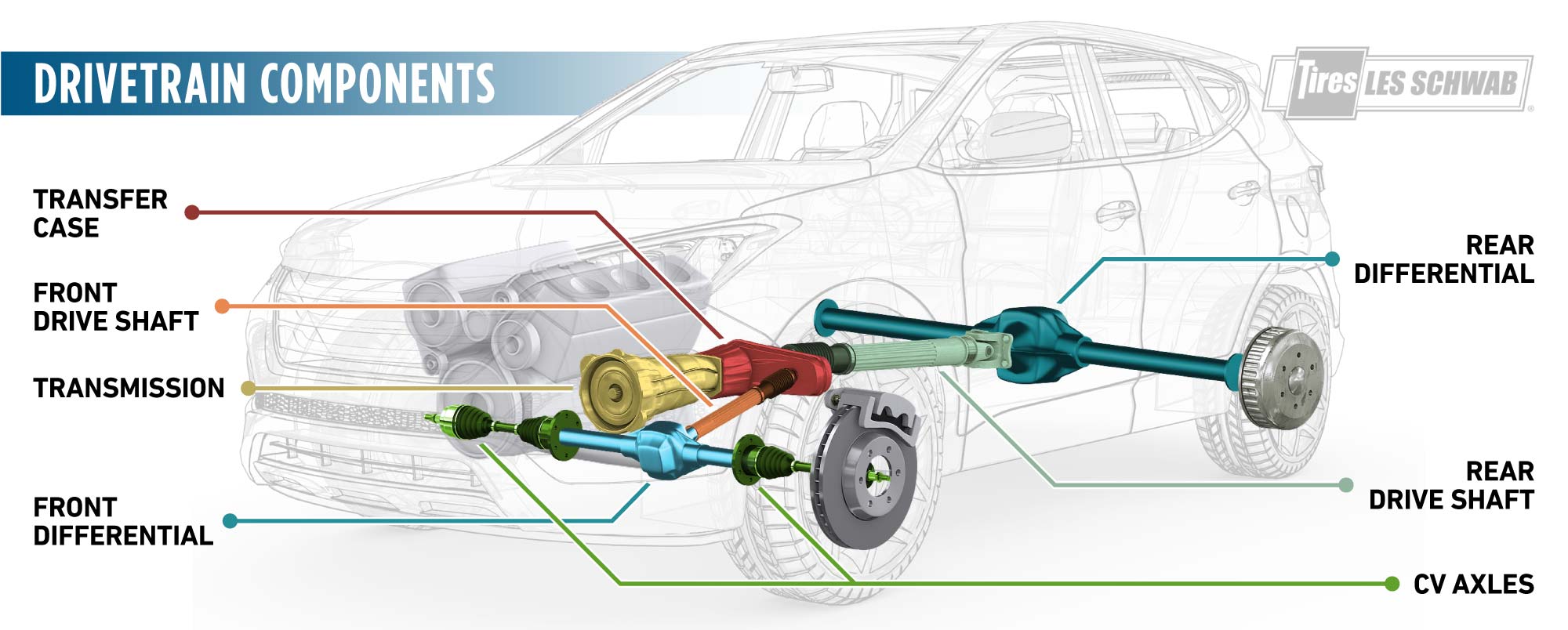-
Should You Replace All Four Tires on Your AWD Vehicle?
Front tires on an all-wheel drive (AWD) vehicle often wear more quickly than those on the rear axle. Why? Because your front tires handle most of the braking and steering. Other factors that can add to wear include: misalignment, aggressive driving, underinflated tires and failure to regularly rotate front tires to the back. (Get tips on avoiding some of these problems here.)
Although, it can be tempting to replace only the two most-worn tires, here’s why it may be better to replace all four tires on your AWD vehicle at once.
Mismatching Tires May Cause Damage to Your AWD Vehicle
Replacing just one or two tires on an AWD vehicle could cause unnecessary wear and tear on your drivetrain, or confuse the traction control system to think that you are frequently losing traction.
A new tire is larger in diameter than one of the same brand, type and size that’s part way through its tread life. This means there’s a measurable difference in tire circumference that may affect your vehicle’s performance.
To understand why this matters, imagine two people out for a walk. Both are wearing fitness trackers that monitor the distance they travel and the number of steps they take. However, one of them is taller and has longer legs. By the end of the workout, they might cover the same distance, but the taller walker will have taken less steps to get there.
The same is true for mismatched tires. A taller tire with more tread depth travels more distance in a single revolution than a shorter tire with less tread depth. In order to keep up, the tire with less tread depth will spin faster and have more revolutions than the tire with more tread depth.

Here’s an illustration showing how even if a tire is labelled the same size, the tire with less tread depth (the shorter/used tire) will revolve more times than the newer (taller) tire with more tread depth.
So why is mixing new and used tires a potential problem for your AWD vehicle? First, even a slight difference in diameter between front and rear tires on your AWD can mean trouble for the drivetrain. These are the components of the car that transfer the power from the engine to the wheels that move the vehicle forward.

If any tire or tires are spinning faster than any of the others, your car’s electronics may think a tire is slipping, and could transfer power incorrectly for your current driving conditions. Most AWD systems in today’s cars include sensors at each wheel that monitor traction and wheel speed many times per second. This is what allows the AWD system to adapt to slick conditions, by sending power to whatever wheel(s) have the most traction.
When smaller tires are spinning faster, some systems may put your vehicle into four-wheel lock, the mode used for driving in slippery conditions. Driving in that mode on pavement or at speed may cause damage to your vehicle’s drivetrain and result in spendy repairs.
Follow Your Owner’s Manual and Expert Advice
If any of your tires are due to be replaced, it’s absolutely essential to check your vehicle’s owner’s manual to see if it recommends replacing all four of your AWD tires at once. Look in the tires and transmission sections. Not following these recommendations may result in costly damage to some of the most important driving components of your car, like the transmission. Any reputable tire dealer will follow car manufacturer recommendations.
At Les Schwab Tire Centers, we use a tread depth gauge to accurately measure the tread depth as a complimentary service. We can then help you decide if a full set of new tires would be best.
Les Schwab Tip: Use the penny test at home to test your tires.
Recap: Why You May Need to Replace All Four Tires on Your AWD Vehicle
- Mismatched tires are often a primary factor in drivetrain damage.
- To minimize variances, ensure they all match (same brand, size and type).
- The tread depth difference between front, rear, left and right tires should be minimal. Check your owner’s manual for specifics.
Not sure if your auto is AWD (or four-, rear- or front-wheel drive?) Check your owner’s manual and look here for the differences.
Learn More